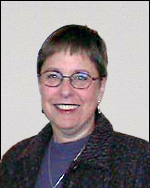As Computer Use Grows, So Do Moral Issues
By Terrell Ward Bynum
This article appeared in the Dallas Morning News, on Tuesday, January 12, 1982.
A famous rock star has just died and millions of fans are grieving. The computer of a major novelty distributor is immediately put into action, for there is not a moment to lose if the grief is to be fully exploited. From data banks of ticket agencies, record distributors and other firms, the computer compiles names, addresses, purchasing histories and financial backgrounds of people who bought records and attended concerts of the fallen star. Within 48 hours of the tragedy, the novelty company begins computer-dialing phone numbers of thousands of grieving fans. Whenever someone answers, the computer plays excerpts of the dead star’s most emotional records along with a sales pitch for souvenir T-shirts and posters. Instantly, orders are taken and confirmation letters are printed. Within a week, more than a million fans have been reached, and factories have been notified of the number of items to produce. Is this imagined application of computers a smart, efficient business venture? Is it unfair exploitation of people caught in a weak moment? Is the gathering of information on people and the phoning of their homes an unethical invasion of their privacy or a new and commendable business strategy? Such questions and many harder ones are being raised and debated in “computer ethics,” a new field of growing concern to business and industry as well as to all of society.
Continue reading “A Discipline in its Infancy”

